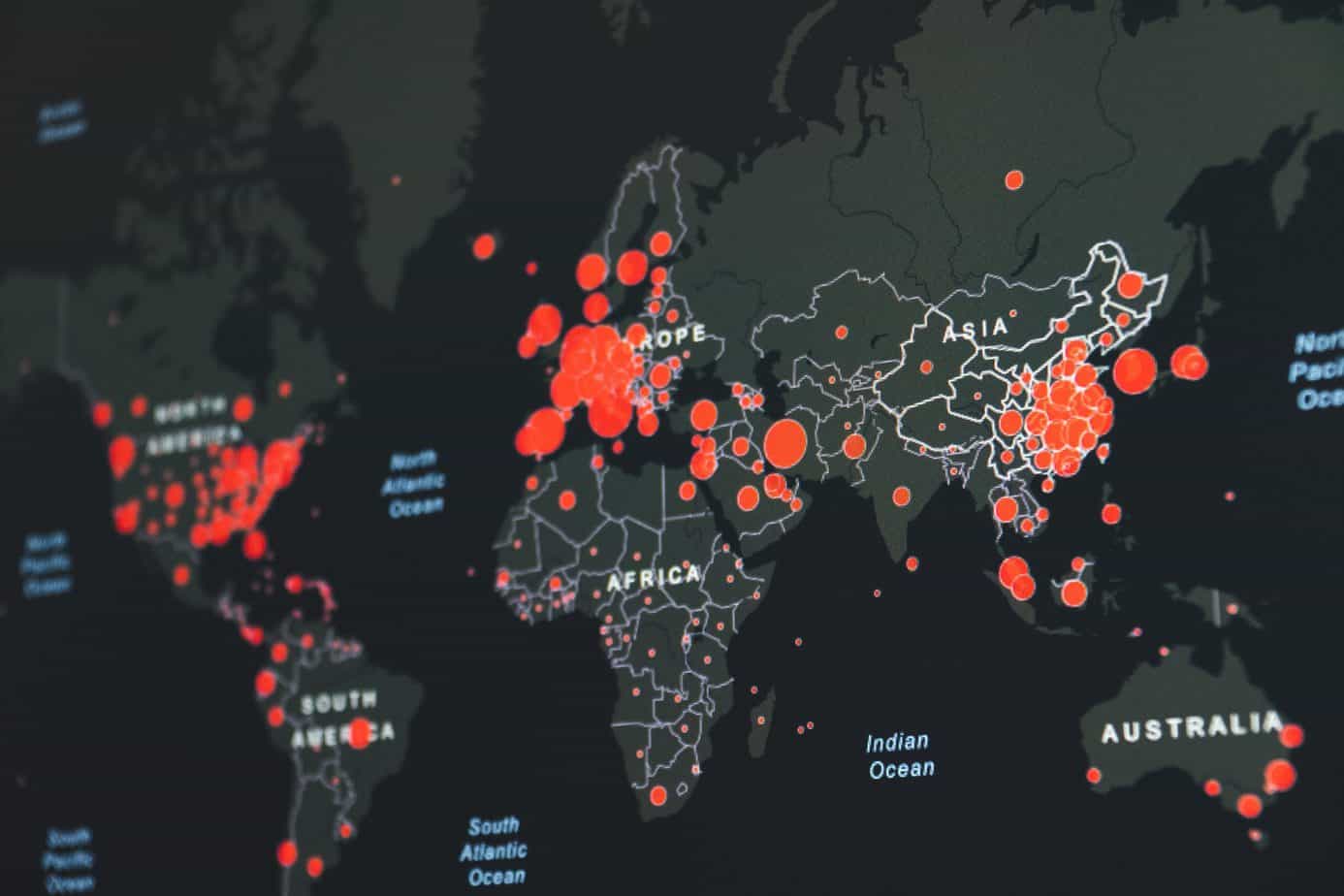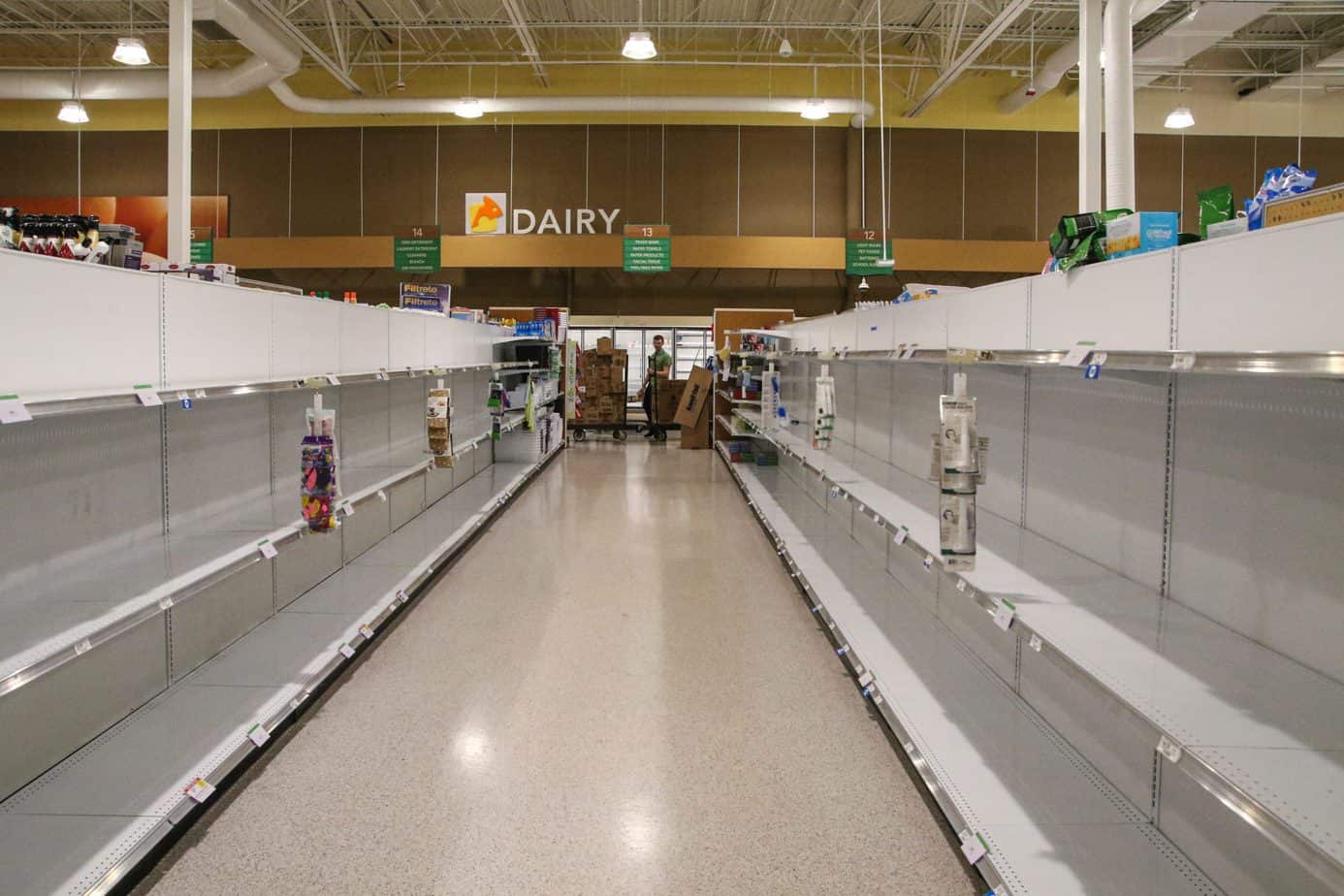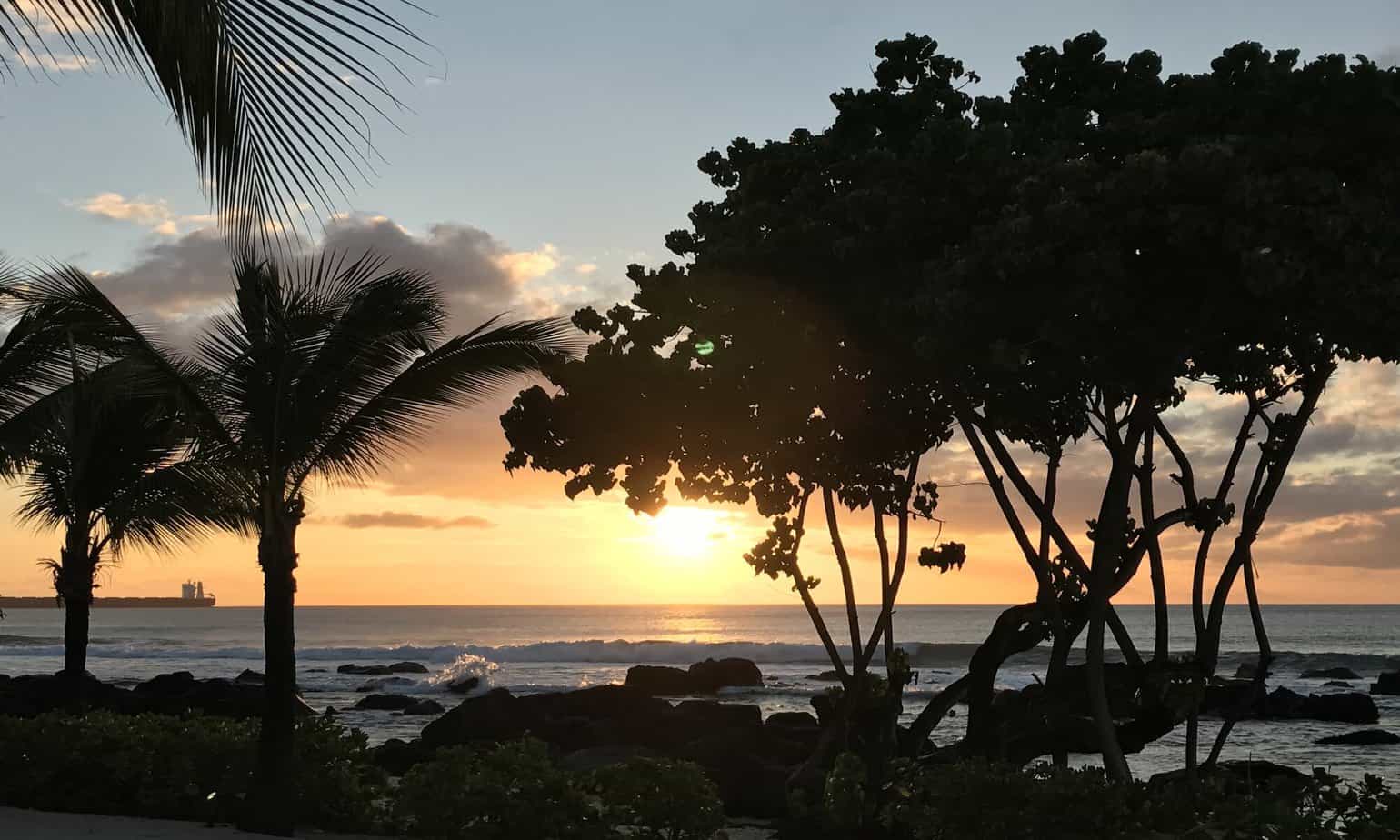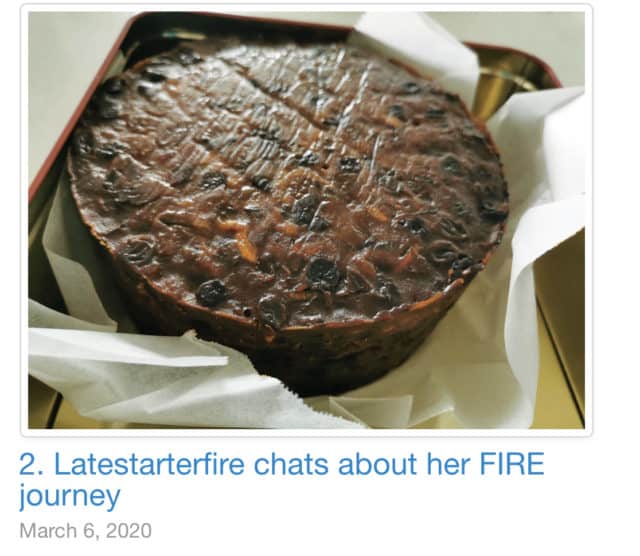
The stock market is in free fall!
Biggest fall in one day!
Then … biggest rise in one day!
Only back to … stock market lost all its gains yesterday!
We are in bear market territory! We will be in recession!
And on, it goes. For the last two to three weeks in Australia.
Is my first thought – oh, will I still be able to retire at 55?
No, because I work in health care. Consequently, there are more immediate problems at hand. And, once again my finances will be shoved to the background while I deal with my every day reality.
And what is that, you ask?
Unless you have been living under a rock, you would be aware of COVID-19, a novel corona virus that ‘jumped’ from animals to humans. Because our immune system has never encountered it before, it has no defence against the virus. And as yet, we have neither a cure to counter it or a vaccine to prevent it.
Our borders are porous in these days of global travel. The spread of COVID-19 became a pandemic. Governments around the world shut down borders, and implemented shutdowns, lockdowns of whole cities, then states then countries.
People first worried about travel plans. Will they still be able to travel to such and such country? They were continuously monitoring COVID-19 cases at their destinations. And scouring pharmacies for face masks and hand sanitisers to take with them.
Now that worry has shifted.
Living with fear, anxiety and the unknown
The ‘unique’ thing about this crisis is that there doesn’t seem to be an end in sight. We look to China who has had a lockdown for months; we look to Italy where the escalating cases and deaths have struck horror into the hearts of all especially healthcare workers.
Every day, the news seem to be worse. We have more cases. Where I live, we’ve just had the biggest daily surge in cases. Politicians are telling people off – do not go to the beach, stay at home, wash your hands.
But to make matters worse, in this age of social media, news – fake or otherwise – spread like wildfire. Remedies, fake or otherwise – are also touted. Strategies on how to fight COVID-19 cannot be agreed upon by the experts – close the schools, don’t close the schools, wear masks, don’t wear masks … etc
I have never witnessed such fear and anxiety among the public and indeed my colleagues. I work in the frontline – in community pharmacy where we come face to face with the public trying to make sense of all these messages. We are in contact with all sorts of people, the scared, the anxious, the blasé, the deniers, the sensible, the prepared – all sorts. Our team members also reflect the general community.
So not only do I need to manage my own anxiety about everything that is going on, I have to manage the fears and anxieties of others, or their actions arising from those fears and anxieties.
Shortage of face masks and hand sanitisers
Many started stocking up on face masks and hand sanitisers, especially those who had experienced SARS before. This is understandable as there were images on TV and social media of people overseas wearing masks while living everyday lives. And hand sanitisers are essential for times when you don’t have access to soap and water.
Face masks were already in extremely short supply in Australia due to our bushfires. Our air quality, even in cities hundreds of kilometres away from the bushfire region was deemed unhealthy. Indeed, Melbourne had the worst air quality in the world for one day.
Our shortage was compounded by China in lockdown and unable to export masks. Then as COVID-19 spread globally, the rest of the world needed face masks too.
So yes, there is a shortage of masks in Australia – for health care workers and the public. The official line from all government authorities is that there is no need to wear masks unless you are unwell or you are caring for someone who is unwell. But what about the health care worker who has to serve customers in a community setting? Whose job it is to help the sick seeking treatment?
Not everyone who enters a community pharmacy is sick, but many are, or who have come into contact with sick family members. Some of my team members wanted to wear masks, some only if forced to, some didn’t care. We already had strict guidelines to give a mask to anyone with respiratory symptoms such as a cough and we don a mask ourselves before we speak to them further.
There are so few masks available. I applied to our district health network who had a supply of masks from the government. I received 10 masks for the whole pharmacy. My greatest fear is that we use up our supply of masks (some of which I had held back from selling to the public despite immense pressure) and the crisis continues to deepen.
I have to protect my team.
If they don’t feel protected or safe, they will not work. And it is crucial that as many health care workers as possible remain on the front line. Once shutdown began last Tuesday, several team members chose not to work while the crisis was ongoing. While I understand their decisions, it put extra pressure on the remaining team members. I have to manage their feeling (some left unsaid, some blatantly expressed) that these team members have let us down.
We make hand sanitisers in Australia. But we import the bottles and pumps from China. When these first ran out, Wuhan was still in lockdown and manufacturers here could not get any more. Now I hear that alcohol used to make hand sanitisers have tripled in price.
A local manufacturer is making 96000 bottles a DAY and cannot meet demand.
So yes, there is a shortage of hand sanitisers in Australia. But there is hope. Some distillers have converted to making hand sanitisers – after all, they have access to alcohol and I guess, they have access to bottles too!
My team has been abused verbally for the lack of face masks and hand sanitisers available for sale. Every single day, we are asked – in person, over the phone and via social media. No, I’m sorry, we don’t have any in stock at the moment – please follow us on social media – we will post when stock is available – no, we don’t know when they will be in stock again. We say this over and over again every day, all day.
And when stock arrive, we don’t have the chance to put them out on shelves. People were snatching them from the cartons as staff tried to put them on shelves. The whole situation made it a very fraught and scary time for our team.
Panic buying
In this climate of fear and uncertainty, with no known end date in sight, I understand that the impulse is to protect one’s and one’s family’s needs. I understand that this is something perhaps we can control since everything else seems to be out of our control.
But the panic buying that ensued was frightening – from toilet paper to medications to vegetable seeds/seedlings.
Never in my life have I dreamt that Australian supermarkets and pharmacy shelves would be empty. We are a RICH country, we have more than enough food for export, we make 90% of our toilet paper. And yet, logic and rationality seem to have disappeared when herd mentality sets in. It has been downright scary.
Even the calmest person who at first was not affected by the panic buying, becomes anxious seeing supermarket shelves empty of meat and fresh vegetables on a weekday. When she actually needed to buy some meat and vegetables for dinner that night. Because she had been too busy serving customers in the pharmacy and did not want to join in the panic buying.

After the panic in supermarkets, pharmacies were next.
Talk back radio discussions sparked a panic buy of paracetamol, asthma medication and insulin. Within hours, we were out of Paracetamol formulations for children.
We could not keep up with stock ordering. There was a rumour that the much larger chains were ordering up to 7 times their normal levels, intending to lock smaller independent pharmacies out of the market. So smaller pharmacies began buying up in large quantities. Pharmaceutical wholesalers could not keep up with deliveries or even update their stock levels. Real time on line portals kept crashing. Or if they were working, it showed many many medications with zero stock available, with no dates as to when more stock would be arriving. They were not answering their phones.
In the meantime, the public was in free fall panic. Everyone wanted several months’ worth of medications. Despite our assurances that there was no shortage of medications in Australia. But there was so much misinformation out there. Our workload tripled in a matter of hours. We were copping abuse for wait times of half an hour to an hour for prescriptions.
Then there were rumours that a particular medication (currently used to treat rheumatoid arthritis, among other conditions) was effective against COVID-19. Doctors, nurse practitioners, dentists were writing multiple prescriptions for themselves and their families. Once again, we copped abuse when we refused to fill these prescriptions. And yes, this medication is currently out of stock at many pharmacies.
Thankfully, the Government has stepped in to restrict medication supply to one month and there are further restrictions on who can get Hydroxychloroquine.
Survival mode
At one stage, I was doing 3 persons’ jobs with key personnel away on sick leave or annual leave. I also have the added responsibility of being a manager and ensuring everything ran smoothly from rosters to stock procurement to staff welfare.
To say I am stressed and overworked is an understatement.
But that is also the state of many of my colleagues.
The hardest part is to sort out the huge volume of information out there – and continuously implementing measures that keeps everyone safe and the pharmacy functioning. Weeding out information on what is fact, what is rumour. Dealing with anxious team members while trying to be calm myself has been a massive challenge. Sometimes, I feel I am under siege from all fronts.
So right now, I am in survival mode. I don’t have the luxury of working from home. My job is classified as essential service so even if we were totally locked down, I would still have to go to work. Therefore I make sure I am eating well, stretching daily even if I can’t exercise daily and trying to sleep well. I make sure I have down time – I mainly read a fictional novel. And avoid social media except to post work stuff.
The crisis will get worse before it gets better. My team members will get sick, if not from COVID-19 then from anxiety and stress about COVID-19 or just being run down overall. We are working hard to avoid this with daily team briefings emphasising ways to look after ourselves and taking a minute out to breathe deeply when we are overwhelmed during our shift.
And I am very grateful that I still have a job. I am grateful that I can still help people and that we are providing essential services and looking after our community.
So, has my retirement plan changed?
Not really, at the moment. Maybe, eventually.
A lot of my savings is automated into various accounts eg travel and investment and will continue without change. My emergency fund remains untouched.
Obviously my travel account will continue to grow since I am not travelling any time soon and can be redeployed elsewhere if really necessary. As usual, when my investment account hits $5000, I invest it into an LIC or ETF. I continue to salary sacrifice into my superannuation (retirement account).
As I continue to accumulate shares, hopefully my dividends will grow over time though I suspect they will be hit next as companies struggle through the downturn or impending recession.
And yes, my shares portfolio and superannuation have sustained a massive blow – but so has everyone else. Thankfully, I do not plan to retire for another six and and a half years. I have no idea when markets will recover. If it hasn’t recovered by the time I would like to retire, then I just work a little bit longer (if I still have a job). It is a long game and I will continue with the game plan. My heart goes out to everyone about to retire. And to everyone who has lost their job.
Final thoughts
I am very thankful that I found the FIRE community in mid 2018 and has had some time to set up my retirement plan, which will just go on auto pilot for the moment.
While I deal with more important stuff.
Like surviving this virus physically and mentally.


